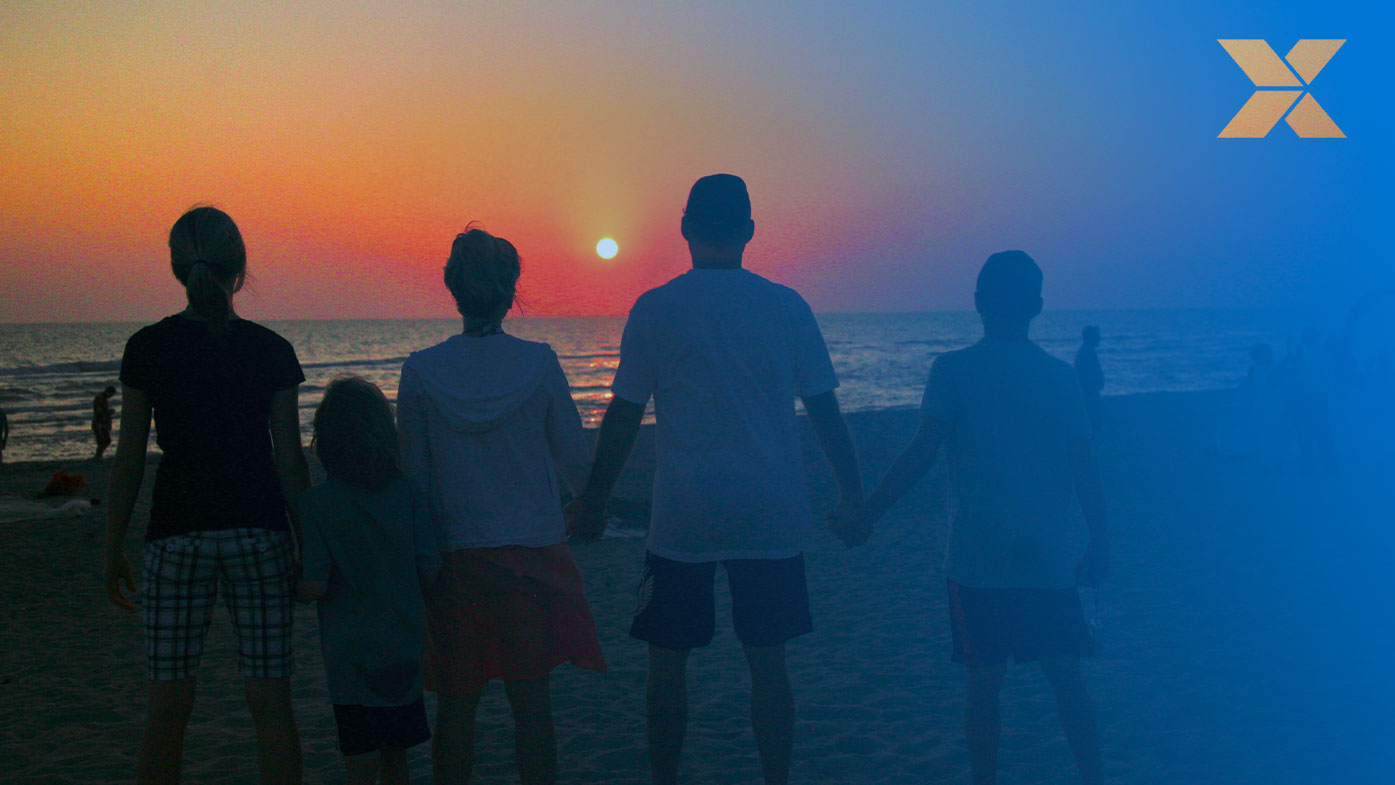Sue and Ben
Sue and Ben could be the ideal clients. They do their homework. They plan. They actually like to plan. They have investments, life insurance. They work well with financial professionals. Their $2 million in savings seems like a home run now that they are on the “starting line” of retirement at 66 and 67. But….
What About Dad?
Sue and Ben also have a lot of questions - really concerns - based on recent developments with Ben’s father, who is suffering from the early stages of dementia. Ben’s dad is a force - the patriarch - and his disability has shaken the entire family.
A great advisor I know - Patrick - says often to his clients that planning is a two part process. The first part is planning with all available information according to the standard path of the planning software. Typically exhausting for the clients but they get a victorious high five from Pat who is genuinely proud of them for the commitment.
Planning for Potholes
The second part requires his tee-up. “That was terrific and congratulations for completing the process”, he leads, “Now we are going to stress test your retirement house”. Uh-oh.
Sue and Ben are becoming aware of that “uh-oh” perspective. Their plan has focused on THEIR needs and they have not considered the impact of demands from the care of their aging parents. “It hit us like a truck”, says Sue, “Here we have been saving and planning for ourselves and we never fully understood that we have family not as prepared”.
The Retirement Planning Stress Test
Wow. Now what, right? The “stress test” planning reveals some significant potential risks and costs for Sue and Ben. Ben’s dad and his dementia diagnosis was a wake up call - with implications. Not unlike many Baby Boomer clients, Sue and Ben are retiring with aging parents. Longevity is a relatively new phenomenon for many families and good advisors know it’s the spoiler of many a well planned retirement.
Patrick presses his case. “Better to prepare for what doesn’t happen than to just hope it doesn’t happen”. But it’s still difficult for Sue and Ben. They are conflicted, they admit. They have taken care of themselves. But they also recognize their obligation to family. Patrick empathizes with their dilemma. “You work all your life and you provide for this moment - and the reality is that people you love have not prepared as well. Now what??”
All Set - On the Surface
The main reason Sue and Ben are “hidden in plain sight” is that they appear to be all set. Compared to most clients, they have followed the planning path and have invested well. Looking at their ages and accounts would make most advisors proud.
The typical Baby Boomer retiring couple has 2-3 aging parents. Many of those parents are surprised by their longevity. “Surprised” may include the failure to plan for that longevity - especially for the portion that requires medical care. Thought leader Ken Dychtwald of Age Wave talks about “healthspan” instead of lifespan. What is that timeframe in which you are able to live independently? For many retirees like Sue and Ben, the potential support for aging parents is an unforeseen condition requiring both considerable time and potential financial support.
How Do We Say No?
In addition to their parents, Sue and Ben have three adult children - two are married with kids of their own. The couple has provided some support to the new families and would like to do more. “Education is very important to us”, says Ben. He and Sue had hoped to provide financial support of their grandchildren’s education but now those hope are diminishing. Raising a family in an uncertain economic climate is challenging and they want to help.
Look for Sue and Ben - They Want to be Found
These are tough issues for any family and typically difficult to sort out alone. The conditions are also changing with the health and longevity of the family members. Sue and Ben look ok at first glance but face significant family concerns. Where can they turn for help?
The Alliance for Lifetime Income has identified through research six opportunities to better engage with clients, including tips for understanding the clients’ current concerns about retirement, which may have changed since first working with their advisor. Please see more at https://resources.protectedincome.org/pdf/New-Client-Profile-2-Sue-Ben-ALI.pdf
My Family Made Me Do It
I was fortunate to know all of my grandparents and three great grandparents - and to see all of them battle significant and scary events in their latest years. All of my older relatives were tough, independent people who lived on their own as long as they could. Here are their stories of retirement wreckage.
The Bear Market
One of my grandfathers was a chemist - analytical by nature. He saved for retirement and left early at 62 in 1970. A wealthy executive friend turned him on to stocks. He never talked about any of it with me - just a young teen - but he couldn’t hide when the 1973-73 market crash slammed his account. Adding to his misery was the Arab oil embargo and gas rationing, keeping his new boat on the dock.
Fortunately the house appreciated somewhat and after my grandmother died, my grandfather sold their dream home and moved closer to family in North Carolina. Upon arrival, he was befriended by a very nice younger lady at church. It took some time for my mother and my aunt to wise up to Mary’s con game and my grandfather moved again to a nursing home in New Jersey.
The Home Invasion
My other grandparents lived in the small West Virginia college town where my grandfather had been president for nearly 20 years. Small and safe, they thought, until the day someone kicked in their front door and made off with all of their silver and jewelry.
Crime was the last thing they feared in Bethany, WV, so they also headed South to an independent living community on a golf course in North Carolina. My grandfather continued to speak and serve on boards until he passed away in 1994.
My grandmother was a great putter, ballroom dancer and concert pianist. She hosted a birthday party every year for herself and everyone in the community aged 90+. The local newspaper provided lavish coverage. She eventually became blind from glaucoma and moved to a nursing facility in Pennsylvania nearby her daughter and granddaughter. She lived to 101 - no one more surprised than her.
Losing Your Mind - And Your Body
My father-in-law was a big personality and a golfing fanatic, eyeing a retirement on the links in Hilton Head after unwinding his business. The melanoma diagnosis was a surprise, though his twin had pre-deceased him.
He was a fighter but when doctors told him more surgery would end his mobility, he gave in with his customary purposeful attitude. One of his final instructions to my wife was, “I’m worried about your mother - something isn’t right”. He was only 75.
That something was Alzheimer’s disease, diagnosed a short time after my mother-in-law burned a pot cooking lemons on her stove. At age 74. My wife and her sisters shuttled back and forth, trying out home care aides and managing schedules around jobs and young kids. My wife visited so often we violated the limit of days we could be in New York State and paid a significant penalty in state taxes.
A fall broke her femur and set off a scramble to find a facility. Costs were outrageous but more alarming was the shortage of acceptable facilities and open beds. Only through tears of frustration did my wife secure a spot in a Westchester assisted living and nursing pavilion - for $20k/month.
Unable to remember the names of any family, my mother-in-law lived in a shrinking world with heightened fear until she died. Everyone remembers her for her poise and pride and generous heart. Her final years cannot eclipse that view.
People talking about aging long before it’s real often speculate about whether they want to be of sound mind or body when they are old. Neither path offers a good ride - and good luck talking Mother Nature out of her plan for you.
The Hurricane
My Florida grandparents lived on Sanibel Island for 18 years without a single hurricane. When Andrew crushed the Miami area, more refugees headed West - to the Gulf Coast.
My parents never spent much time in Florida and I was surprised when they decided to relocate to Sanibel in 2004. They had a small house up North but ultimately found one place simpler and easier. The week after they finished renovations, the first hurricane in a long time, Charley, struck Sanibel and Captiva. Their house was ok, my condo at South Seas was knocked flat.
My father hated Florida. My mother loved it and was soon involved in everything. My father was increasingly isolated - his work had been his identity. Always a great author and editor of medical texts, he penned a novel in hopes of growing a new passion. It was rejected by a publisher - a fact I learned only when I cleaned out his office after he died in 2016. I always wondered why he stopped writing.
Around 2014-15, my parents and I had a tough conversation about long term care costs. They owned retirement annuities from my dad’s employment, more than adequate to cover their modest living expenses. They paid off their home.
It was a battle with my mom, but we settled on buying a unit at a large continuous care retirement facility just off the island in Fort Myers. Mom declared she would never take residence, but the decision proved a godsend when my father was diagnosed with pancreatic cancer in the fall of 2015. He checked in to the nursing pavilion in October and passed away in February. He never went home.
Mom settled in to her new life, motivated by close friends and her many responsibilities. She traveled some, including trips to Scotland and Alaska with family in tow.
Fast forward to September 28, 2022 and the assault of Hurricane Ian. Evacuating at the last minute amid an uncertain forecast, Mom hunkered down with my sister on the mainland.
When the terror ended, Sanibel had been destroyed by 150 mph winds and a tidal surge as high as 18 feet. With an average height of just three feet, Sanibel was overwhelmed.
With her friends, her annuities, her activities and the manageable pace of an island with a 30 mph speed limit, Mom had it all. Until she didn’t.
Just Plan That the Plan Will Fail
It’s impossible to predict what will actually happen and the best financial advisors don’t do that. They help clients plan for the best, most reliable path. And then the really good advisors run that plan again with as many “what ifs” as they can think of. And none of these “what ifs” are good surprises with positive outcomes. They don’t expect a winning lottery ticket. They plan for bad news or bad developments so they can help protect clients and their families from those most feared situations. Because they happen to more people than you think - and very often to people you know.
Steve Gresham is the managing partner of Next Chapter, a community of 60+ financial service organizations dedicated to improving retirement outcomes for all.
Pick Up the Phone - It’s Older (and Wiser) You Calling
Most people are not prepared for retirement. And most people are not prepared for a natural disaster. Is there a connection?
- More than 20 million houses in the U.S. are at risk from serious flooding. Fewer than 5 million have flood insurance.
- One in 10 Americans aged 65+ suffers from Alzheimer’s and more than 20% have some form of dementia. 3.3% of the population has long-term care insurance.
Retirement stress and natural disasters both pounce on people who think they might be OK, but aren’t really sure and haven’t really taken precautions. And besides, the “forecast” is never right…right?
Our Brains Don’t Plan
Blame our brains. We have trouble with abstract concepts. We can’t process “odds” – we process only what we can see or feel or deposit or fear. Clients get in big trouble with retirement planning because they hear the numbers but don’t really “see” themselves forward. Really good advisors close the gap.
It is ironic that the designer of our planning deficient brains is the same Mother Nature who is most often the culprit when we fail the worst. The real risk in retirement is not running out of money, it’s running out of options.
But There’s Never Been a Big Storm Before
Take my mom’s neighbor, call her Marcie. Marcie and her husband moved to Florida for retirement and had all their bases covered. He died a couple of years ago with their home fully paid for and modest but adequate savings.
Mom, Dad, Marcie and her husband made it through Hurricane Charley in 2004, which slammed their island and completely deforested the historic canopy along Periwinkle Way. Charley was mostly wind so damage was minimal at both homes. Irma in 2017 was different and loomed more threatening. My mom evacuated to the mainland and spent a couple nights sitting in a folding chair in a school gym with no air conditioning. At age 83.
Again, the storm was forecast to be worse than it turned out. Local preparation for the evacuation was uneven and led to public recriminations.
When Hurricane Ian hit the island on September 28 last year, a wavering forecast and last minute evacuation orders confused many residents. Too many recalled the pure discomfort and inconvenience of Irma and didn’t gird themselves for the disaster to follow. 1,000 people stayed on the island and were hit with 150 mph winds and storm surge as high as 18 feet – on an island an average three feet about sea level.
Mom was slammed. Four months later we are still working with the insurance companies to determine her compensation. The auto insurance company was awesome - paying cash for her car and removing it fast. The flood company low balled an offer.
One Storm, Two Levels of Preparation
Nearby, Marcie has no flood insurance. With her home free and clear, Marcie let the homeowner’s insurance lapse, “reasoning” that it wasn’t required anymore by a lender.
Mom has both flood and wind coverage. But not Marcie. She cannot afford to rebuild. She has two adult children who both live modest lives in modest homes with kids. Neither the kids nor Marcie want to live with each other in those conditions.
My wife and I are empty nesters with extra bedrooms. Mom was able to stay with us for weeks and grind through the endless paperwork with help.
Hey You, It’s Me – I Mean, You
One of my favorite advisors over the years focused on life insurance and retirement income – “protection” strategies. His greeted every new client with “bad news”. “I know what is ahead for you, it’s my job”, he would start, “And I will have advice from you that you will wish you accepted. To make it easier, I’m going to be someone you don’t know but who knows YOU very well. That person is you, at age 75. And every time we have a disagreement about the steps I suggest for your plan, you will be arguing not with me, but with you”. He always got a kick out of saying it that way.
Simple but effective. Makes it real.
The Powerball winner in Maine beat odds of 292 million to one. Why does the scratch off have more traction than the 401(k)? It’s real, in your hand. And those three golden crowns just might be hiding there. Why not, right??
Ask your older self for the two bucks.



